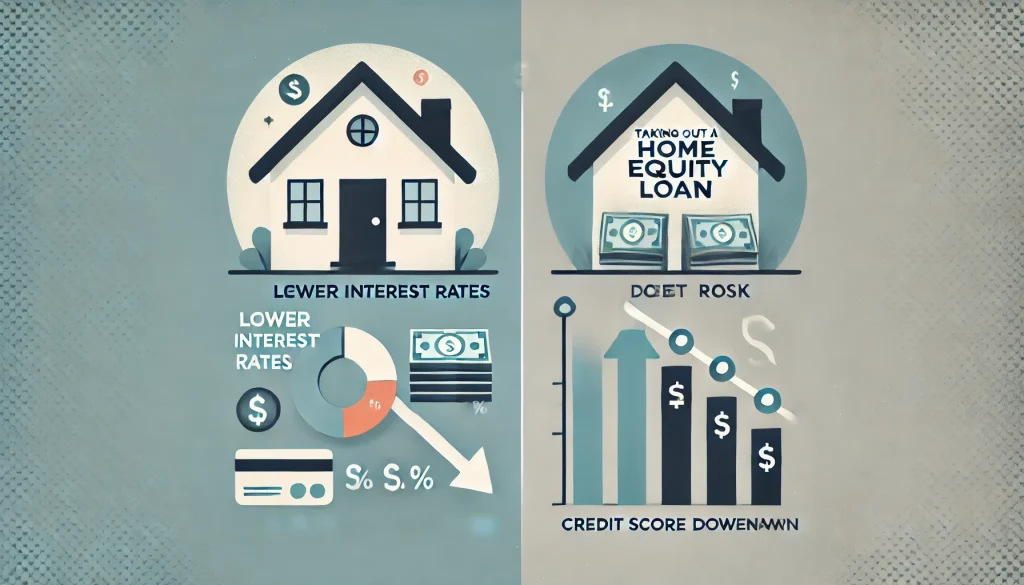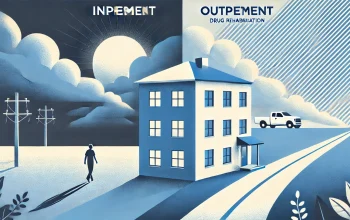Pros and Cons of Home Equity Loan: Rates and More
Pros and Cons of Home Equity Loan: Homeownership offers a unique advantage beyond just providing a roof over your head—it can serve as a powerful financial asset. One such way is by taking out a home equity loan. As you build equity in your home, you may find yourself in a position to borrow against that value, using it for various needs such as debt consolidation, home improvement, or even funding a large purchase. But, like all financial decisions, home equity loans come with their own set of pros and cons. In this article, we will break down the ins and outs of home equity loans, exploring interest rates, repayment terms, risks, and benefits, so you can make an informed decision about whether it’s the right choice for you.
Table of Contents
What Is a Home Equity Loan?
A home equity loan allows homeowners to borrow money by leveraging the equity they’ve built up in their home. Equity refers to the difference between your home’s current market value and the outstanding balance on your mortgage. For instance, if your home is valued at $300,000 and you owe $150,000 on your mortgage, you have $150,000 in equity. A lender may allow you to borrow against a percentage of that equity, usually up to 80-85%, depending on your credit score and financial health.
There are two main types of home equity loans:
- Fixed-rate home equity loans – You borrow a lump sum amount with a fixed interest rate, repaying the loan over a set period (usually 5-30 years).
- Home equity line of credit (HELOC) – You’re given a line of credit that you can draw from as needed, with a variable interest rate that fluctuates over time.
Both of these options have their own benefits and drawbacks, which we’ll cover further.
How Does a Home Equity Loan Work?
Home equity loans work similarly to traditional loans. The lender provides you with a lump sum of money or access to a line of credit, depending on the loan type. The amount you borrow is secured by the equity in your home, which means the loan is backed by your property.
Your repayment period and interest rate will depend on several factors:
- Loan-to-value ratio (LTV): This is the percentage of your home’s value that you’re borrowing. The higher the LTV, the more risky the loan for the lender, which may result in higher interest rates.
- Credit score: Borrowers with higher credit scores tend to receive better interest rates.
- Repayment period: Shorter-term loans may have higher monthly payments but lower overall interest costs.
Now that we have a basic understanding, let’s dive into the pros and cons of home equity loans.
The Pros of Taking Out a Home Equity Loan
1. Lower Interest Rates Compared to Other Loans
One of the main attractions of a home equity loan is its relatively lower interest rates compared to unsecured personal loans or credit cards. Since your home serves as collateral, lenders can offer lower rates, which can save you thousands of dollars in interest payments over time.
For example, while the average credit card APR might range from 15% to 25%, home equity loans often come with interest rates between 3% and 8%. This makes them an attractive option for consolidating high-interest debt.
2. Potential Tax Deductions
In some cases, the interest paid on a home equity loan may be tax-deductible. The Tax Cuts and Jobs Act of 2017 allows homeowners to deduct interest on home equity loans if the funds are used for home improvements. However, it’s crucial to note that the tax benefit does not apply if the loan is used for other purposes, like paying off credit card debt or purchasing a car.
Be sure to consult with a tax advisor to determine if your home equity loan interest is tax-deductible.
3. Access to a Large Amount of Funds
Since home equity loans are tied to the value of your home, they often provide access to significant amounts of money, far more than you might be able to obtain with personal loans or credit cards. This makes home equity loans ideal for large expenses such as major renovations, medical bills, or even covering educational costs.
For instance, a homeowner with $200,000 in equity could potentially borrow up to $170,000, depending on their LTV and creditworthiness.
4. Fixed Monthly Payments
For those who prefer predictability in their finances, fixed-rate home equity loans offer the benefit of consistent monthly payments. This makes it easier to budget and plan, as you won’t have to worry about fluctuating interest rates or varying payment amounts, as you might with a HELOC.
5. Flexible Use of Funds
The money from a home equity loan can be used for a variety of purposes, providing flexibility that isn’t always available with other loans. You can use the funds for home renovations, consolidating debt, starting a business, or even taking a vacation.
This flexibility makes home equity loans a versatile financial tool for homeowners who need access to cash.
The Cons of Taking Out a Home Equity Loan
1. Risk of Foreclosure
The most significant risk of taking out a home equity loan is the potential loss of your home. Since the loan is secured by your property, defaulting on payments could lead to foreclosure. If you encounter financial hardship and are unable to make your loan payments, your lender has the legal right to take possession of your home to recover their money.
This risk is a serious consideration, especially for those with unstable income or uncertain financial futures.
2. Additional Debt
While a home equity loan can provide immediate financial relief, it’s important to remember that you’re taking on additional debt. This increases your overall financial obligations, which can strain your budget if not managed carefully.
For example, if you’re using a home equity loan to pay off credit card debt but don’t address the habits that led to that debt, you could end up with both a mortgage and renewed credit card debt, compounding your financial burden.
3. Closing Costs and Fees
Much like taking out a first mortgage, home equity loans come with various closing costs and fees. These may include application fees, appraisal fees, origination fees, and more. These costs typically range from 2% to 5% of the loan amount, which can add up, especially on large loans.
For example, if you take out a $100,000 home equity loan, you may have to pay between $2,000 and $5,000 in closing costs, which will either need to be paid upfront or rolled into the loan amount.
4. Variable Interest Rates (for HELOCs)
While fixed-rate home equity loans offer stable payments, home equity lines of credit (HELOCs) often come with variable interest rates. This means your payments can fluctuate based on market conditions. If interest rates rise, your monthly payments could increase significantly, making it more difficult to manage your finances.
For example, if your initial HELOC rate is 4%, but market rates rise to 6%, your monthly payment could increase by hundreds of dollars.
5. Reduces Your Home’s Equity
Taking out a home equity loan reduces the amount of equity you have in your home, which could limit your options if you want to sell your home or refinance your mortgage in the future. If home values decline, you could find yourself with little or no equity, which may lead to being “underwater” on your mortgage.
This is especially important to consider in volatile real estate markets where home values can fluctuate.
Factors to Consider Before Taking Out a Home Equity Loan
1. Your Financial Stability
Before taking out a home equity loan, evaluate your financial situation carefully. Do you have a stable income? Are you able to manage monthly payments without stretching your budget? Taking on additional debt should not lead to financial stress or compromise your ability to cover essential expenses.
2. Loan Purpose
It’s crucial to have a clear plan for how you’ll use the funds from a home equity loan. If you’re using it for home improvements or debt consolidation, it may be a wise financial decision. However, using it for discretionary spending like vacations or luxury purchases could lead to financial strain in the future.
3. Interest Rates and Fees
Shop around and compare offers from different lenders to ensure you’re getting the best interest rate and terms. Also, take into account the closing costs and fees associated with the loan. Some lenders may offer no-closing-cost loans, but these often come with higher interest rates, so be sure to weigh the pros and cons.
4. Loan Terms
Consider the loan’s repayment period and structure. A shorter-term loan may result in higher monthly payments, but you’ll save on interest in the long run. Conversely, a longer-term loan may lower your payments, but you’ll end up paying more interest over time.
5. Alternative Options
Before committing to a home equity loan, explore other financing options. Depending on your needs, a personal loan, refinancing your mortgage, or even using savings may be a better choice.
Conclusion
Taking out a home equity loan can be a smart financial decision for homeowners who need access to cash for large expenses, debt consolidation, or home improvements. With lower interest rates and the potential for tax deductions, it offers several benefits. However, it’s important to be mindful of the risks, such as the potential for foreclosure and the accumulation of additional debt.
Before moving forward with a home equity loan, carefully evaluate your financial situation, explore alternative options, and consider consulting with a financial advisor to determine if it’s the right move for you.



